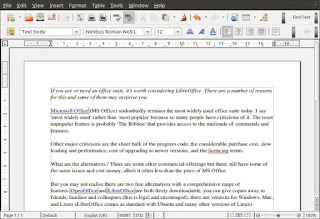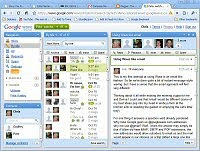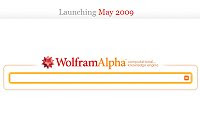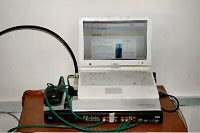Most businesses and other large organisations (government, church, military, education, medical) are based on a hierarchical command and control structure of some kind. In government, even though leaders may be selected democratically, during their term of office they work as a hierarchical structure with a prime minister or president granted overall authority.
Is the hierarchical model appropriate for all projects and organisations? Are there workable alternatives?
One alternative that has been demonstrated to work (and work well) is an organic approach. This is based on the way living organisms grow, flourish, and reproduce. It also depends on grasping the nettle of death and decay - this is an essential part of the process, anything that is no longer working must be discarded and recycled.
Take the growth of a forest as an example. A tree starts its life from a small seed and it has a pattern of growth, maturity, seed release, and death. The forest consists of many trees of a variety of kinds along with other plants, animals, fungi, and bacteria. All of these follow their own particular patterns of growth and reproduction and together they form an interacting ecological web that maintains itself rather well. Not only that, species will move in or decrease as climatic and other conditions change. And over periods of tens of thousands of years and upwards the species that make up the forest may evolve and fill new or unused niches that become available. Not only is the forest self-maintaining, it's also self-adapting in the long term.
Can organisations be maintained and adapted in the same way? Yes they can.
Let's take the computer operating system
Ubuntu as an example. Most of us think of Microsoft Windows when we think of an operating system, or perhaps Apple's OS X. But there are many others. One of these is Linux, and Ubuntu is just one flavour of Linux.
A recent
TechRadar article outlines how Ubuntu is built and managed. The
Ubuntu website is the public face of the organisation where you can download your own copy (free of charge) or learn much more about what the system offers.
Compare and contrast this approach with
Microsoft's proprietary and traditional business model for
Windows.
The organic approach is as old as the universe itself. It works. If it didn't, we wouldn't be here.
I began by listing various kinds of organisation - business, government, church, military, education, medical. It would be easy to extend the list. The table below provides some examples of each along with generalised properties of such organisations. In practice, of course, extreme examples are rare, normally organisations fall somewhere in the continuum between hierarchical and organic and this is certainly true for the examples below. Even the most structured organisation allows (even demands) a degree of original thinking and initiative from staff; even the most organic and democratic organisation has basic rules governing behaviour.
|
Hierarchical |
Organic |
Business |
Microsoft
Shell
Tesco
Unilever |
Traditional high street
Village fair
Sole traders |
Government |
Absolute monarchy
Dictatorship |
Anarchy
Liberal democracy |
Church |
Orthodox
Roman Catholic |
House church
Simple church |
Military |
Regular army |
Al Qaeda |
Education |
University
School |
Life experience
Parent/child interaction |
Medical |
Government service |
Private care |
Properties |
Command based
Controlling
Formal
Obey
Leader decides
Top down structure |
Do your best
Freeing
Individual decides
Informal
Organic |
So always remember that there is not just one way of doing things. There are two extremes with a whole range of possibilities between them. If you are creating or running any kind of organisation or activity, be open minded and choose the approach that will best suit your objectives.
 I'll continue posting blog articles to my Facebook wall for the time being, but nothing else.
I'll continue posting blog articles to my Facebook wall for the time being, but nothing else.





















